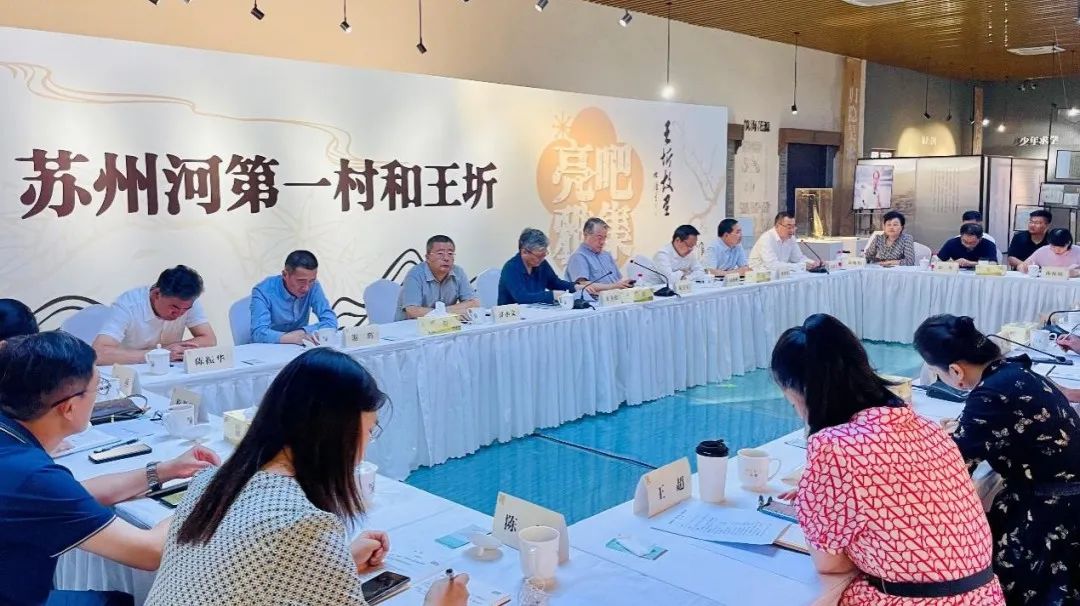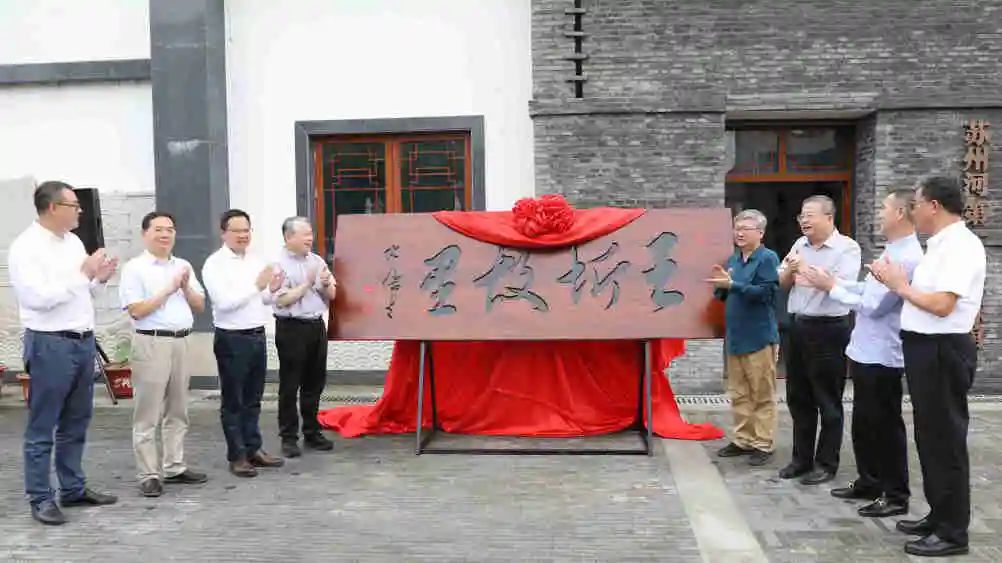“Insights Exchange: The Foremost Village on the Suzhou Creek and Scholar-Official Wang Qi” Convened

The Insights Exchange: The Foremost Village on the Suzhou Creek and Scholar-Official Wang Qi (1530-1615), an event co-organized by the Shanghai Federation of Social Science Association and Minhang District CPPCC, and co-sponsored by Huacao Town People’s Government and Shanghai Bookstore Publishing House, was held on August 18th with experts and scholars from universities and research institutions such as the Shanghai Academy of Social Sciences, Fudan University, East China Normal University and the Shanghai Bookstore Publishing House.

In the speech entitled “Great Practical Significance of In-depth Exploration of the Cultural Resources in and of Wang Qi’s” the historian Shao Jian from the Shanghai Academy of Social Sciences delved into Wang Qi’s life and his political visions and reputed service as a governmental official. In doing so, the historian especially drew attention to Wang’s philosophy of exercising power for the people, his rigorous attitude to scholarship and his fine family traditions. Then he moved on to discuss the reinvention of Huacao Town (Wang Qi’s hometown). He commended the efforts of the new rural construction in Huacao Town The town’s Zhaojia Village has been recognized by the city of Shanghai as a “Model Village,” worthy of its name as “The Foremost Village on the Suzhou River”. Wang Qi is a prominent cultural emblem shining through 500 years and across the Huangpu River. Transforming Wang Gi into a top-tier intellectual property for Zhaojia Village, Huacao Town of Minhang District, and even the city of Shanghai will undoubtedly contribute to local economic, social, and cultural development.
Prof. Fang Xiaoyi of the Department of Chinese Language and Literature of ECNU put forward his lecture “Scholar-Official Culture Embodied in Wang Qi and the Cultural Tourism Construction of Huacao Town”, noting that Wang Qi, an outstanding scholar-official in the Ming Dynasty, implies an essential direction for the future cultural tourism development of Huacao Town. Tapping into Wang Qi’s poems that describe or relate to this hometown of his, exploring the “Peach Blossom Spring” imagery thoroughly, combining it with the ancient Chinese literati culture of plum blossoms and creatively using visual elements of “the Foremost Village on the Suzhou Creek” can be optimal ways to boost the cultural tourism industry of Huacao.
Zhou Wu, Deputy Director of the Institute of International Sinology of Shanghai Academy of Social Sciences gave a lecture on “Wang Qi and His Great Learning”. Taking Wang Qi’s works, Continuation of Comprehensive Examination of Literature, Collection of Unofficial Histories and Collected Illustrations of the Three Realms as examples, he pointed out that Wang Qi had a strong sense of humanistic pragmatism and cared about the change of the society. His thoughts and spirits have exerted lasting influences on the history of Chinese thought and Chinese culture, and the thought of Chinese scholar-officials.
Prof. Li Tiangang from the School of Philosophy of Fudan University made a speech on “Wang Qi’s Collected Illustrations of the Three Realms and Jiangnan Culture in Ming-Qing Dynasties”. He observed that Wang Qi’s writings reflect a pragmatic shift of the academic style in Jiangnan intellectual culture. He looked out to the world and opened a window to foreign lands. The professor suggested further diversifying the exhibition content and presenting the Collected Illustrations of the Three Realms in popular ways such as cartoons, e-sports, and data visualization, etc. to continuously spill its influence over to young people.

